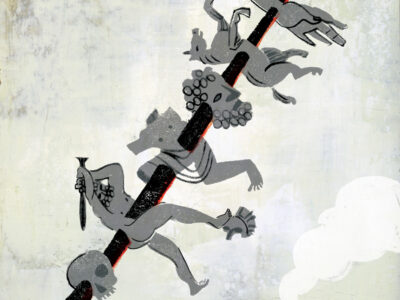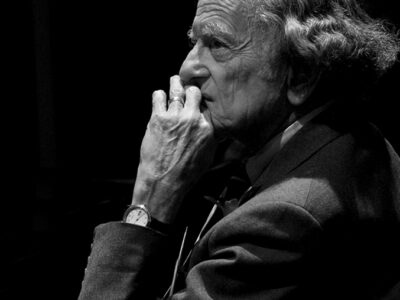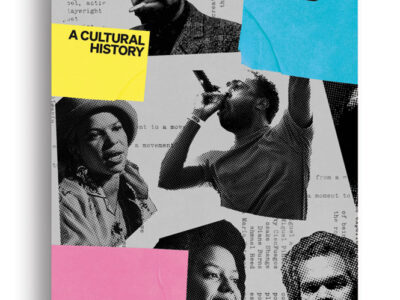For most college seniors, winning a prestigious Marshall Scholarship for graduate study in the United Kingdom would be the highlight of the year. But there’s something about performing spoken-word poetry in the East Room of the White House that’s tough to beat. Especially when you draw a standing ovation from Barack and Michelle Obama, as Joshua Bennett did last May at an event featuring the likes of James Earl Jones and novelist Michael Chabon.
Bennett, who has also performed on HBO’s Brave New Voices, is the first African American from Penn to win a Marshall. He plans to pursue a master’s in theater and performing arts at the University of Warwick. The Yonkers, New York, native sees spoken-word poetry as a uniquely democratic discipline, both in the breadth of voices it embraces and the range of performance styles it synthesizes.
“Growing up, I would always have this experience where I would read things like Catcher in the Rye, to take a literary example,” he says. “I would read these texts that were supposed to be canonical and universal, but they weren’t. They were just white. And I just could not see myself in a lot of the stories that were supposed to be telling me about the human condition. What I found in spoken-word was that for the first time I felt young folks, I felt women, I felt people of color whose stories were front and center. Their experience, all of a sudden, was worthy of critical attention.
“I was just on the edge of my seat the first time I saw spoken-word poetry. What it has the power to do is collapse a bunch of different performing-art forms—you have stand-up comedy, theater, hip-hop, traditional page poetry, sometimes you have sign language—you have all these things that can collapse upon each other in this beautiful amalgam of art. And I think it has power to break certain boundaries. I’ve done spoken-word in prisons. I’ve done it in the White House. I’ve done it for corporations. It’s hard to think of very many art forms that can cross that many borders, in a way that’s really quite fluid.”
At the White House, Bennett performed “Tamara’s Opus,” a piece about his struggle to communicate with his older sister, who is deaf.
As someone who draws much of his inspiration from sources close to home, Bennett is particularly interested in the intersection of disability and race. “Three of my siblings are disabled … My older brother is schizophrenic. And my younger brother Levi was diagnosed with autism when he was younger. So growing up, especially with my little brother, seeing the ways in which he has to navigate race, disability, and masculinity on a regular basis—and now that he’s coming into puberty, seeing him grow into a black man who has disability as a major part of his identity—made me really interested in how society reacts to disability.”
At Warwick, he wants to create “a genealogy of disabled black performers in the transatlantic world,” ranging from 19th-century pianist Thomas “Blind Tom” Wiggins, an autistic prodigy who played at the White House as a slave owned by a Georgia lawyer (who later channeled proceeds from Wiggins’ performances to a Confederate relief fund), to modern performers like Ray Charles and Stevie Wonder.
At Penn, Bennett has done more than perform. The English and Africana studies major co-founded the University’s chapter of the NAACP, as well as the first U.S. undergraduate research journal of Africana studies. He started Beautiful Art Ruptures Silence, a program that holds creative-writing workshops in men’s and women’s prisons. And now that he’s won a Marshall Scholarship, he’s trying to compile the narratives of other African Americans around the country who have won major fellowships, with an eye toward inspiring more to try.
—T.P.




